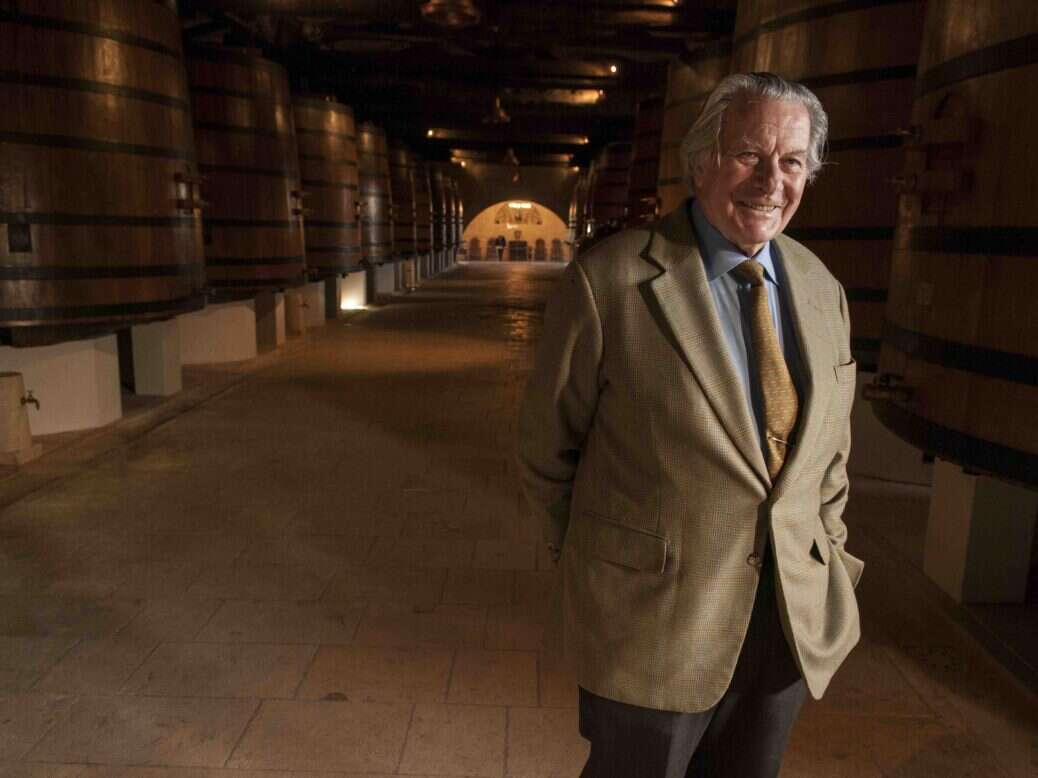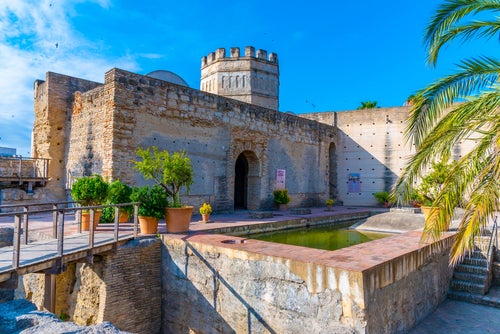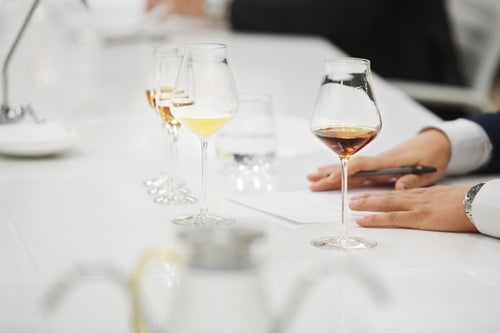
Raymond Blake pays tribute to the late Anthony Barton, whose time at the helm of his family’s châteaux, Langoa and Léoville Barton, made him one of the most respected figures in Bordeaux.
“I don’t want to keep you,” Anthony Barton repeated. “You can keep me as long as you like,” I responded. This was the back-and-forth gist of a telephone conversation last October, the final time we spoke. We had been playing “telephone tag” for days, always missing each other and leaving innumerable messages until we finally got to speak directly. I wasn’t about to hang up on him and I am now so glad that I didn’t. Anthony was calling to thank me—graciously and generously—for the article I had written to celebrate 200 years of Barton ownership of Château Langoa Barton (WFW 72, 2021, pp.140–45). Then, as soon as was polite, I steered the conversation back across the decades to earlier days, to a time before his worldwide recognition as one of the true gentlemen of the wine trade.
A gilded beginning?
Anthony Barton was born at Straffan House in Co Kildare, Ireland in 1930, about a century after it was built by his ancestor Hugh Barton, inspired by a château at Louveciennes near Paris, with an eye-catching campanile added some years later. Superficially at least, this was a gilded beginning, but this was a time of serious economic decline and, being a younger son, he had no prospect of inheriting. By the time he came of age, the magnificent property had been sold by his father and Anthony had moved to Bordeaux, where his Uncle Ronald owned and managed the Barton châteaux, Langoa and Léoville.
The situation was hardly any better there—the glory days that came in the 1980s and ’90s lay far in the future and even further beyond imagination—with Ronald commenting in the early 1950s that one more poor vintage would force him to sell. That did not come to pass, but it was to be three decades before Ronald ceded control to Anthony in 1983, and in short time he made his mark with the still-celebrated 1985 vintage. For another three decades his star rose and rose, until he became one of the most senior and respected figures in Bordeaux, and far beyond, though the term “grand old man” could never have been used to describe that tall and debonair figure with the twinkling eye and the sparkling wit.
Memories of Ireland
During my conversation with Anthony last year he mentioned that he had jotted down some reminiscences of his visits back to Ireland over the years, and finished with a promise to post them to me. He was, of course, as good as his word, and I have relied heavily on them in penning these lines—this appreciation would be much the poorer without them.
“We had a delightful agent, Desmond Sullivan, with a great sense of humor. We were driving from Dublin to Cork and were overtaken by a terrible thirst…” This necessitated stopping for some stout, half pints soon segued into pints, new friendships with fellow drinkers blossomed, tall tales were exchanged and, thus buoyed up, Anthony attempted to engage in conversation a taciturn fellow who was wordlessly sluicing back the pints, “… so I caught his eye and in a somewhat uninspired moment asked him:
‘Do you live around here?’
‘I do.’
‘Are you married?’
‘I am.’
‘How long have you been married?’
‘Fifteen years.’
‘And do you have a family?’
‘I do.’
‘And how many children do you have?’
‘Fifteen.’
‘That’s a fine family and are there many boys?’
He pushed his cap to the back of his head and scratched before replying in the longest sentence so far offered:
‘There must be seven or eight of them.’”
On another occasion: “Desmond and I were visiting a potential customer and produced our pretty complete list of available wines. He looked through it and complained: ‘We Irish are not very good with all these fancy French names. Barton, Palmer, Talbot, Boyd, and so on are all right but we can’t manage the French ones.’ I agreed: ‘I know what you mean, some of them of them are a bit difficult, like Château Grand Barrail Lamarzelle Figeac St-Emilion.’ ‘Do you have any of that?’ he asked.”
Impeccable credentials
Irish wine lovers are inordinately proud of our fellow countrymen and women who, over the centuries, have struck out across the seas to make a name for themselves in the wine business, in places as far flung as Australia’s Clare Valley and America’s Napa, though it is much closer to home in Bordeaux that they have made the most lasting mark. Neither are we shy about spinning the most tenuous of links into a rock-solid connection back to the Emerald Isle. But no such imaginative genealogy was needed with Anthony Barton—his Irish credentials were 24-carat.
Collectively this widely scattered group of Hibernian wine folk is known as the “Wine Geese” and, entirely unofficially, Anthony Barton was seen as the group’s figurehead, standing primus inter pares as the most notable and distinguished of them all. Much has been said and written about his genial company, the urbane demeanour, the easy ebb and flow of conversation. He was a magnet in social situations, the one that others sought out, as I witnessed at a wedding reception in Bordeaux we both attended some years ago.
As the guests mingled before and after the seated meal, all the wine lovers gravitated toward him, if only to exchange greetings and the odd pleasantry, but hopefully to steer the conversation toward wine, for his was an opinion always worth soliciting. A word about the recent vintage, his view on a new trend, a comment on the latest news or state of the market. Having chatted to him myself for a couple of minutes, I stood back and observed, musing: What wouldn’t countless politicians give for such appeal?
Some years before that, when the Ryder Cup was held at his old home, Straffan House, by then transformed into a swish golf and country club and renamed The K Club, I was editing K, the club’s in-house magazine. We published a feature on the historical connection with the Barton family and, soon after, a beautifully penned letter of thanks was received from Anthony, his only quibble being with, “… the compliments bestowed on ‘Yours Truly.’” The letter finished with a PS: “We have been back to visit our old home a few times and I must say it gives great pleasure to see it so well cared for, even loved. On one of our visits a member of staff, hearing that I had spent nearly 20 years of my life there, asked if I noticed many changes. All I could think of was to reply, ‘In my day there used to be mud.’”
A 300-year story
In 1722, Thomas Barton left Ireland for France, thus starting a 300-year story, a long chapter of which has closed. Anthony Barton’s death is a poignant marking of the tercentenary, but the story will go on and his role in safeguarding and embellishing the legacy he was handed will shine bright. The Barton châteaux are in the able hands of his daughter Lilian Barton-Sartorius and her children Mélanie and Damien, a circumstance, he confided last October, that gave him great happiness.
If Anthony Barton was born with a silver spoon in his mouth, it was shoddily plated; what he leaves behind is pure sterling. And that includes a trove of tales and anecdotes, wry comments and witty quips that will be repeated by family and friends for years to come. Thus it is best to leave the last word to him, confided to me after a tasting years ago: “When I was a young man I had a broad mind and a narrow waist. Now they’ve swapped.”
Note: We join with the whole wine community in offering our sincere condolences to Anthony’s wife, Eva, his daughter Lilian Barton-Sartorius and son-in-law Michel Sartorius, and their children Mélanie and Damien.






